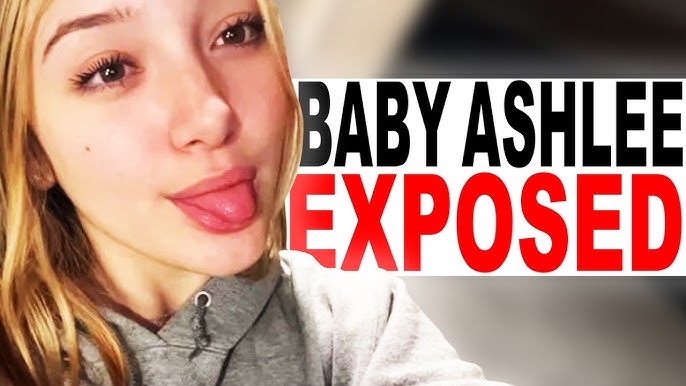In the fast-paced world of social media, controversies can erupt in the blink of an eye. One name that’s been making waves recently is Babyashlee Leaks. But what’s all the fuss about?
This article dives deep into the BabyAshlee leaks phenomenon, exploring the facts, implications, and what it means for online privacy.
Whether you’re a concerned parent, a curious teen, or just someone trying to make sense of the digital landscape, this is your essential guide to understanding the BabyAshlee situation.
Who is BabyAshlee and Why Are People Talking About Leaks?

BabyAshlee is a social media personality who gained popularity on platforms like TikTok and Instagram. Known for her youthful appearance and controversial content, she quickly amassed a significant following.
However, her rise to fame has been marred by allegations of leaked content, sparking debates about privacy, consent, and the responsibilities of content creators.
Related: Companies that offer ride-sharing services: Quarterly Tax Plans
The Timeline of Events: How Did the BabyAshlee Leaks Unfold?
The BabyAshlee leaks controversy didn’t happen overnight. It’s crucial to understand the sequence of events:
Early 2023: BabyAshlee’s follower count skyrockets on TikTok
Mid-2023: Rumors begin circulating about private content being shared without consent
Late 2023: Multiple platforms see an influx of allegedly leaked material
Early 2024: BabyAshlee addresses the situation, causing further debate
The Legal Implications: What Laws Come into Play?
When it comes to leaked content, especially involving minors, the legal landscape is complex:
- Child protection laws may apply if the content involves underage individuals
- Copyright infringement could be a factor if the leaked material was created by BabyAshlee
- Revenge porn laws in some jurisdictions might be relevant, depending on the nature of the leaks
The Role of Social Media Platforms: Are They Doing Enough?
Social media giants like TikTok, Instagram, and Twitter have been thrust into the spotlight:
- Content moderation policies are being scrutinized
- Questions arise about the effectiveness of age verification processes
- Debate continues on whether platforms bear responsibility for leaked content
The Psychological Impact: How Does This Affect Young Creators and Fans?
The BabyAshlee leaks controversy has far-reaching emotional consequences:
- Young creators may experience increased anxiety about their online presence
- Fans might feel betrayed or conflicted about their role in consuming content
- Parents and educators grapple with how to address these issues with children
Privacy in the Digital Age: What Can We Learn from This?
The BabyAshlee situation serves as a stark reminder of the importance of digital privacy:
- The permanence of online content becomes painfully apparent
- The ease of sharing and redistributing digital material raises ethical questions
- The need for better education on online privacy and consent is highlighted
The Broader Conversation: How Does This Relate to Other Influencer Controversies?
Baby Ashlee’s case isn’t isolated. It’s part of a larger trend:
- Comparisons can be drawn to other influencer scandals involving privacy breaches
- The incident has reignited discussions about the ethics of young influencers
- Questions about the sustainability of internet fame are being raised
The Response from the Community: How Are Fans and Critics Reacting?
The online community’s reaction has been mixed and intense:
- Some fans continue to support BabyAshlee, citing her as a victim
- Critics argue that the situation highlights the dangers of early exposure to fame
- Heated debates about responsibility and accountability dominate social media
The Future of Content Creation: What Changes Might We See?
In the wake of the BabyAshlee leaks, the content creation landscape may evolve:
- Stricter age restrictions for certain types of content could be implemented
- Platforms might introduce more robust privacy features for creators
- There could be a shift towards more transparent and ethical content creation practices
Protecting Yourself Online: What Steps Can Individuals Take?
Learning from the BabyAshlee situation, here are key steps for online safety:
- Be cautious about the type of content you create and share
- Regularly review and update privacy settings on all platforms
- Educate yourself and others about the potential risks of online exposure
Frequently Asked Questions
Who is Babyashlee?
Babyashlee is a social media personality, primarily active on platforms like Instagram, OnlyFans, and Twitter. She gained popularity for her content, which often includes personal and explicit material.
What are the Babyashlee leaks?
Babyashlee leaks refer to unauthorized releases of her private or paid content from platforms such as OnlyFans. These leaks are usually distributed on various websites and forums without her consent.
How did Babyashlee’s content get leaked?
Leaks can happen through hacking, unauthorized screenshots or recordings by subscribers, or other security breaches on content platforms like OnlyFans.
Is it illegal to view or share leaked content?
Yes, sharing or distributing leaked content without the creator’s consent is illegal and violates copyright laws. It can also lead to legal consequences for those involved.
Where can I report leaked Babyashlee content?
If you come across Babyashlee’s leaked content, you can report it to the platform where it is hosted. Additionally, reaching out to the content creator to notify them can help address the issue.
Conclusion
The BabyAshlee leaks controversy serves as a wake-up call for the digital age. It highlights the delicate balance between online fame and personal privacy, the responsibilities of platforms and creators, and the need for better digital literacy.
As we navigate this complex landscape, it’s crucial to approach online content creation and consumption with caution, empathy, and a strong understanding of the potential consequences.
The BabyAshlee situation may be today’s headline, but its lessons will resonate far into the future of our digital lives. Questions or a call-to-action that encourages readers to share their own experiences or opinions in the comments section.
